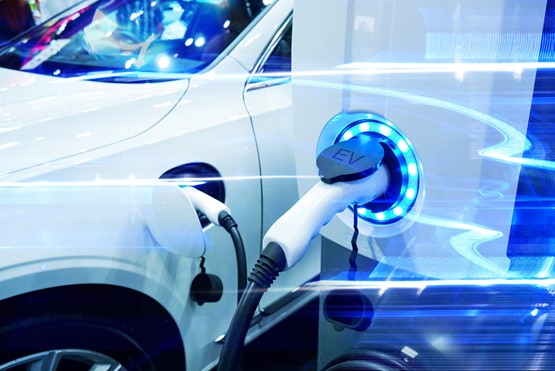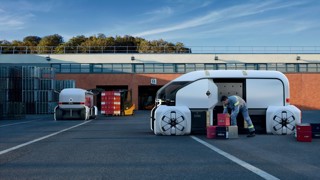The UK’s largest and highest profile fleets are in the crosshairs of a campaign to accelerate the uptake of electric vehicles (EVs).
EV100 is a programme launched by the charity, The Climate Group, with the goal of bringing forward the transition to EVs to 2030.
The UK Government has already expressed its intention to prohibit the sale of cars with internal combustion engines by 2040, but EV100 has more ambitious targets in both timeframe and type of vehicle.
The hundred in its name refers to “100% ambition” to transition to a battery-powered fleet by 2030, says Sandra Roling, head of EV100.
The objective is that supporters of the campaign will commit to all of their sub-3.5-tonne vehicles, whether commercial or passenger car, to be electric within 12 years, and 50% of vehicles that weigh between 3.5 and 7.5 tonnes.
“We are all expecting the transition to electro-mobility to happen, but from a climate and air pollution perspective, making that happen earlier rather than later would be preferable, so we felt that 2030 would be an ambitious target to move the timeline forward,” added Roling.

By harnessing early demand from the purchasers of large volumes of vehicles, EV100 hopes to unlock further market development, increasing the production of EVs, driving down prices and making EVs more accessible and affordable.
Setting the deadline of 2030, “seemed to be sufficiently ambitious, but also realistically doable with a coherent strategy behind it”, says Roling.
The timeframe acknowledges that fleets may have established vehicle renewal cycles that will need adjustment, and allows scope to trial EVs and build up engagement steadily.
It will require a big uplift from today. Data from sister magazine Fleet News’s FN50 report reveals that, of the 433,000 vans funded by the UK’s 50 biggest leasing companies, just 1.2%, or 5,200, are full electric.
Meanwhile, 2.1% of the 1.3 million cars (27,500) are electric.
However, the British Vehicle Rental and Leasing Association and its membership has pledged to increase the number of EVs (cars and vans) from 50,000 to 720,000 by 2025.
What’s required, though, is an increase in the number of electric vans on the market. At present, the only 3.5-tonne EV is the Iveco Daily.
The Volkswagen eCrafter is on trial with a few fleets but will not be launched in right-hand drive in the UK until next year, while the Renault Master ZE will not go on sale for another couple of months.
Nevertheless, EV100, which officially launched just over a year ago, has already signed up 26 of the world’s biggest fleets to its cause, although figures for how many vehicles this represents will not be available until the campaign publishes its first annual report at the start of next year.
Among the first companies to join are Bank of America, Deutsche Post DHL Group, EDF Group, Heathrow Airport, HP, Ikea, LeasePlan and Unilever. Evidence from a longer established sister campaign run by The Climate Group, called RE100 (to accelerate the uptake of electricity from renewable sources) indicates that a membership of about 100 companies is readily achievable.
“You start by building an initial group of leaders,” says Roling (below). “It’s following the innovation uptake curve model where you have the front runners, the early adopters, and then eventually you move the idea into the mainstream.
“The initial step is demonstrating that electro-mobility is feasible, and that there’s a strong business case there by working with a set of representative companies.
“In terms of geographical spread we have a broad range across Europe, North America, China, Japan, India and New Zealand and in terms of industry sectors we have logistics, retail, leasing and utilities.”

If there’s a unifying characteristic among these companies, it’s not simply their scale, but also their strong climate targets and their determination to think ahead in their strategies about what a low carbon future looks like and what it means for their businesses.
The two most recent recruits are the Port Authority of New York and New Jersey, which will switch 50% of its 1,300 light duty vehicles to electric by 2025, and the world’s fourth largest telecoms company, Nippon Telegraph and Telephone Corporation in Japan, which has pledged to convert half its 11,000-strong fleet to electric by 2025 and the rest by 2030.
Membership of EV100 is free, and there’s no minimum fleet size to join, but to build momentum the initiative has certain types of fleet in its sights.
“It’s about impact and footprint,” says Roling. “For some companies it’s about the size, but sometimes it’s also about visibility and public interaction.
"If you take Heathrow Airport, for example, they have a green-level fleet and thousands of travellers coming through every day who would, of course, be using electric taxis and electric shuttle buses, so there’s an exposure opportunity.”
The UK should be a fertile recruitment ground for EV100 members given the current political focus on air quality and pollution.
With London due to introduce an ultra-low emission zone next year that will charge non-compliant heavy commercial vehicles £100 to enter the centre of the capital, and other major cities devising their own plans to combat diesel emissions, electric propulsion appears to be the logical solution to maintain the seamless delivery of goods and services to air-sensitive urban centres.
But, this is more than a UK project. Members of EV100 are expected to make a global commitment that all of their operations develop a roadmap to transition to EVs, even if local conditions mean the chronology may be staggered.
Early feedback from the first year of the campaign indicates a handful of key factors are driving interest in EV100 and, more broadly, electric vehicles.
“If a company is serious about reducing its emissions, it should be looking at its transport operations,” says Roling.
The purchasing power and influence of EV100 members is giving them a more active voice in the dialogue with policymakers and automotive manufacturers to shape the future market.
“The campaign offers profiling and recognition for the leadership they (EV100 members) are showing,” says Roling.
“We want EV100 to be a group that increasingly can be a voice in these types of conversations and articulate what companies need on the demand side to fulfil their EV ambitions.”
On the practical side, EV100 presents opportunities through regular webinars and ‘leadership lunches’ for participants to share best practice and learn from one another.
Moreover, the economic argument is slowly swinging in favour of EVs as their total cost of ownership begins to match that of diesel-powered vehicles.
“In the medium term we expect the cost argument to grow,” says Roling. “We know that the upfront investment is still higher but the cost curve is coming down – Bloomberg is expecting the upfront, unsubsidised costs to be competitive about 2024.
"So, in the coming years we see an interesting space where, dependent on what usage model you have, the total cost of ownership will become quite interesting.”
Nor should the PR value of being seen to be a pioneer of green, sustainable initiatives be overlooked by companies with an increasingly eco-aware consumer base.
As for the boldness of committing to a zero emission fleet by 2030, “there is a strong case for putting an ambitious target out there and just doing it as strongly as you can, finding peers to work with, and not underestimating what you can achieve”, says Roling.



















Login to comment
Comments
No comments have been made yet.